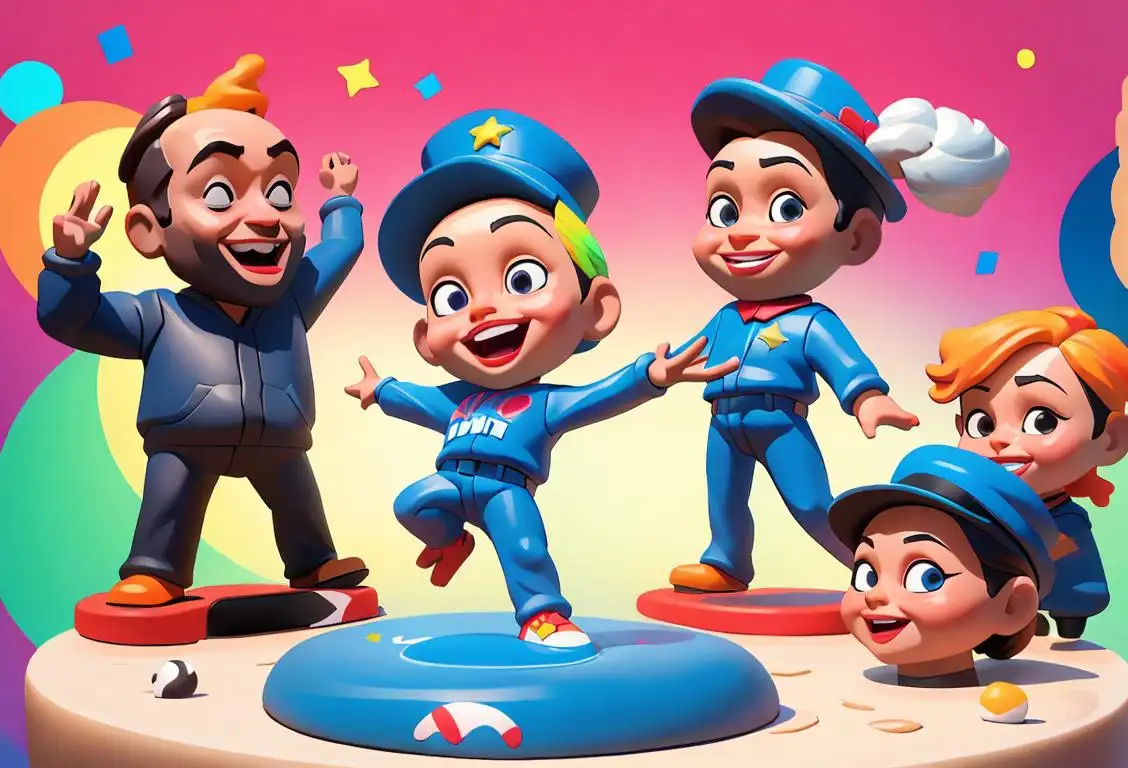National Pump Day

Welcome to the fabulous world of National Pump Day! Get ready to dive into the fascinating history and delightful celebrations of this special day. Grab your snorkel and let's jump right in!
When is Pump Day?
It's national pump day on the 2nd March.
Pump it Up!
Every year on National Pump Day, we celebrate the amazing wonders of pumps and the important role they play in our lives. From fuel pumps to water pumps, these nifty devices are responsible for keeping things flowing smoothly. Whether it's pumping water from a well, pumping gas into your car, or even pumping up your bicycle tires, pumps make our lives easier in so many ways.
The World of Pumping
Pumps have been around for centuries, dating back to ancient civilizations. The ancient Egyptians used simple devices to lift water from the Nile River for irrigation. Can you imagine how much work that saved them? Thank you, ancient Egyptians, for paving the way for modern pumping technology!
In the 17th century, the invention of the steam engine led to the development of more sophisticated pumps that could pump water out of mines. This not only made mining safer but also revolutionized the world of industry. Soon, pumps were being used in various industries, from manufacturing to agriculture.
Pump Up the Fun
On National Pump Day, there are many fun ways to celebrate. You can host a water gun fight with your friends and family, making sure everyone stays cool in the summer heat. Or you could challenge your loved ones to a bicycle race and see who can pump up their tires the fastest. Remember, it's not just about speed, but also about precision!
Did You Know?
Did you know that the world's largest pump can move over 200 million gallons of water per day? That's enough to fill 320 Olympic-sized swimming pools! Talk about pumping some serious H2O!
History behind the term 'Pump'
1600s
Early Hydraulic Systems
During the 17th century, the term 'pump' originated as a noun in English to describe a device that moves fluids by suction or pressure. This was a time when hydraulic systems were becoming more prevalent and the need for efficient fluid transportation was growing. Pumps were primarily used to extract water from wells and transfer it to other locations. The term 'pump' was derived from the Middle Dutch word 'pompe,' which meant to 'to draw out' or 'to inflate.'
1769
Steam Pump Invention
In 1769, the Scottish engineer James Watt invented a revolutionary steam-powered pump known as the 'steam engine.' This marked a significant step forward in pump technology, as it replaced human or animal power with steam power. Watt's invention was instrumental in the Industrial Revolution, allowing for improved water supply, drainage, and irrigation systems. The term 'pump' became more widely recognized as a verb at this time, referring to the action of moving fluids using mechanical devices.
19th Century
Expansion of Pump Applications
With technological advancements and growing industrialization in the 19th century, the use of pumps expanded into various industries. Pumps were utilized for tasks such as pumping steam, fuel, and chemicals, as well as in the oil and gas industry. The term 'pump' became synonymous with a wide range of mechanical devices used to move different types of fluids efficiently.
20th Century
Diversification of Pump Types
In the 20th century, the term 'pump' continued to evolve as new pump technologies emerged. Different types of pumps were developed for specific applications, including centrifugal pumps, positive displacement pumps, reciprocating pumps, and more. The term 'pump' became more specialized, referring to specific pump designs and configurations based on their operational principles.
Present Day
Modern Pump Innovations
In the present day, pumps play a vital role in a wide range of industries, including water management, agriculture, manufacturing, and construction. Advances in pump technology have led to improved efficiency, reliability, and environmental sustainability. Modern pumps incorporate advanced materials, automation, and digital control systems. They are crucial for maintaining supply chains, ensuring safe water distribution, and supporting various industrial processes. The term 'pump' has become universally recognized and continues to symbolize the essential devices that keep our world running smoothly.
Did you know?
Did you know that the world's largest pump can move over 200 million gallons of water per day? That's enough to fill 320 Olympic-sized swimming pools!Tagged
fun loved ones sportsFirst identified
2nd March 2017Most mentioned on
2nd March 2017Total mentions
16Other days
Suicide Prevention Month Day
Happiness Day
Drink A Beer Day
Trivia Day
Cancer Survivors Day
Take A Hike Day
Memorial Day
Foundation Day
Bobblehead Day
Bowling Day









